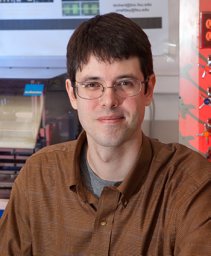UROP Project
Lipid-regulation of enzyme function
chemistry, biology, physics, enzyme, catalysis

Research Mentor: Dr. Steven Lenhert,
Department, College, Affiliation: Florida State University, Arts and Sciences
Contact Email: lenhert@bio.fsu.edu
Research Assistant Supervisor (if different from mentor): Vincent Tocci
Research Assistant Supervisor Email: vmt19@fsu.edu
Faculty Collaborators: Vincent N. Tocci
Faculty Collaborators Email:
Department, College, Affiliation: Florida State University, Arts and Sciences
Contact Email: lenhert@bio.fsu.edu
Research Assistant Supervisor (if different from mentor): Vincent Tocci
Research Assistant Supervisor Email: vmt19@fsu.edu
Faculty Collaborators: Vincent N. Tocci
Faculty Collaborators Email:
Looking for Research Assistants: Yes
Number of Research Assistants: 3
Relevant Majors: Open to all majors
Project Location: On FSU Main Campus
Research Assistant Transportation Required: Remote or In-person: In-person
Approximate Weekly Hours: 5-10, During business hours
Roundtable Times and Zoom Link:
Number of Research Assistants: 3
Relevant Majors: Open to all majors
Project Location: On FSU Main Campus
Research Assistant Transportation Required: Remote or In-person: In-person
Approximate Weekly Hours: 5-10, During business hours
Roundtable Times and Zoom Link:
- Day: Thursday, September 4
Start Time: 2:30
End Time: 3:00
Zoom Link: https://fsu.zoom.us/j/91096083262
Project Description
Chemical reactions in biological systems are highly regulated by protein catalysts known as enzymes. Enzymes speed up a variety of reactions and understanding their regulation by small molecules allows numerous applications in medicine and biotechnology. When compared to synthetic catalysts, enzymes can be highly selective due to unique structural properties that enable molecular recognition. Small organic molecules known as lipids are abundant in biological systems, yet are often removed to study enzyme function in vitro. This project will study the regulation of enzyme activity using purified enzymes exposed to lipid additives.Research Tasks: Relevant literature will be reviewed and experimental design carried out. Enzyme function will be measured using well established colorimetric assays. Enzyme activity will be measured in the presence of lipid libraries.1-4 Data will be analyzed and graphs plotted to determine the enzyme kinetics. Further details related to the tasks will be determined based on the student’s abilities and availability. An ideal result of this project would be coauthorship on a paper that makes use of the data produced during the project.
References:
1. S. Liu, K. Kumar, T. Bell, A. Ramamoorthy, D. Van Winkle, S. Lenhert, Lipid-Based Catalysis Demonstrated by Bilayer-Enabled Ester Hydrolysis. Membranes 14, 168 (2024).
2. S. Liu, A.-T. Wei, H. Wang, D. Van Winkle, S. Lenhert, Combinatorial Mixtures of Organic Solutes for Improved Liquid/Liquid Extraction of Ions. Soft Matter 19, 6903-6910 (2023).
3. T. N. Bell, K. Feng, G. Calvin, D. H. Van Winkle, S. Lenhert, Organic Composomes as Supramolecular Aptamers. ACS Omega 5, 27393-27400 (2020).
4. D. H. Juers, B. W. Matthews, R. E. Huber, Lacz Β-Galactosidase: Structure and Function of an Enzyme of Historical and Molecular Biological Importance. Protein Science 21, 1792-1807 (2012).
Skills that research assistant(s) may need: Required: Basic chemistry or molecular biology
Recommended: Data analysis, UV-Vis absorbance spectrophotometry, microscopy, enzymology
Mentoring Philosophy
I seek to understand student’s goals and current abilities and to provide guidance to enable them to achieve their goals. This involves providing opportunities as they appear. Examples of opportunities could be an experiment that the student could carry out, coauthorship on a publication, or involvement in a collaboration. As an interdisciplinary scientist, I value different ways of thinking and approaching research tasks. When working in groups I look for synergy. If I’m teaching a student a skill that I have myself, then I demonstrate it and then let the student repeat it. I also tend to think of my students as collaborators and appreciate learning from them as well. I use, and encourage use of deliberate practice, which is an approach to developing expertise based on solving well designed achievable goals using feedback and guidance from a mentor. I meet at least once a week with my research group where we discuss our research, get feedback from each other, and identify achievable goals. Examples of research goals could be to take steps towards constructing a device, design or carry out an experiment, analyze a data set, search the literature for relevant papers, work on some scientific writing and communication. I continue to practice these skills myself and to improve my mentoring as well, doing my best to be a good example. As Isaac Asimov once wrote, “education is not something that can be finished.”Reference:
https://jasonhaaheim.com/how-did-scientist-become-timpanist-met-orchestra/

